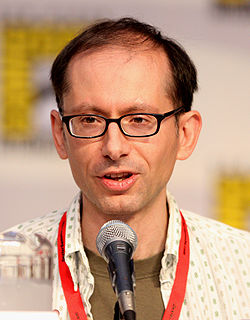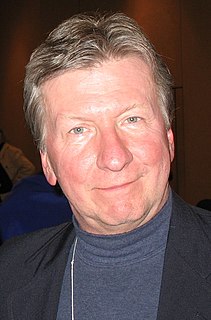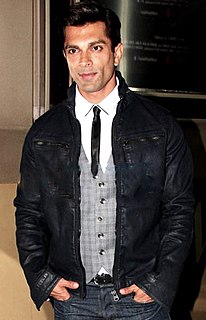A Quote by Martin Amis
I would say I'm an ironist not a satirist. All you do is you take existing tendencies and crank them up, just turn up the volume dial. Which is a technique of science fiction, apart from anything else.
Related Quotes
You often hear when you talk to guys in our industry, that this is my personality, I just turn the volume up, but over the years, I've really become me. No volume turned up, no nothing. I've been able to go out there and just be myself. It's through solid performance after solid performance that people just take you for who you are.
If it had been anything else, we would have said, 'People don't want us to do it. Forget it. Let's just leave it alone.' But this is not in that category. This is interesting science. New science. With a hint of a possibility of a very useful technology. Therefore, if you've got any integrity, you don't give up. You only give up if you find you are wrong. But as long as you believe that you are right, you have to continue. And you have to take the consequences.
I would say that Futurama: Bender's Big Score requires a lot of concentration to watch. It's a very complicated time-travel story. Part of the joke on that was just that the complexity would be over the top. This one is a more straight-forward science-fiction story, I would say. Alien invasion and people running in terror, that kind of thing, with a slight twist of there being an inappropriate physical relationship with the big octopus monster. We've got a straight-up science-fiction movie.
'Who are we?' And to me that's the essential question that's always been in science fiction. A lot of science fiction stories are - at their very best - evocations of that question. When we look up at the night sky and wonder, 'Is there anyone else out there?' we're also asking who we are we in relation to them.
Who are we? And to me that's the essential question that's always been in science fiction. A lot of science fiction stories are - at their very best - evocations of that question. When we look up at the night sky and wonder, "Is there anyone else out there?" we're also asking who we are we in relation to them.
I guess...on one hand, I spent way too much time watching science fiction and reading science fiction when I was growing up. But a part of it is I also never felt much of a connection to the world in which I lived while I was growing up, and so, oddly enough, I think I felt a lot more connected to the worlds that I read about in science fiction.
Some people never learn how to talk to kids. They turn up the volume and enunciate with extra care, as if talking to a partially deaf immigrant. They sound as if they're reading lines somebody else wrote for them, or as if what they're saying is really for the benefit of other adults listening and not just for the child. Kids sense that and turn off.
Science fiction, as I mentioned before, writes about what is neither impossible nor possible; the fact is that, when the question of possibility comes up in science fiction, the author can only reply that nobody knows. We haven't been there yet. We haven't discovered that yet. Science fiction hasn't happened.






































